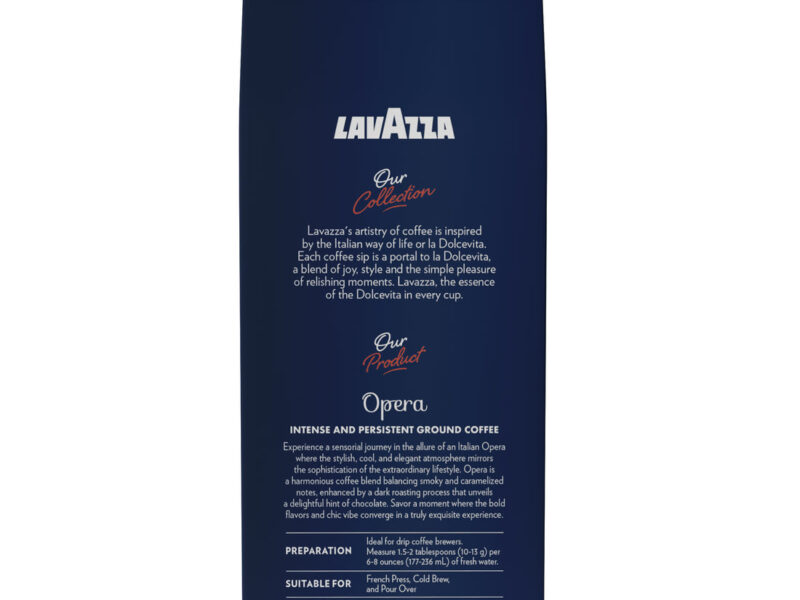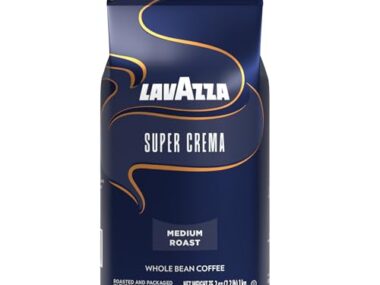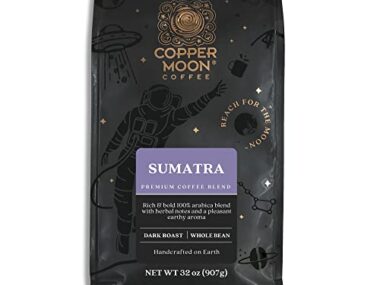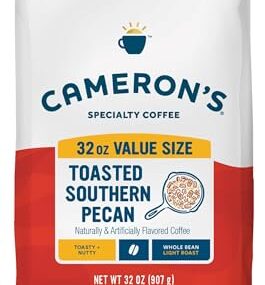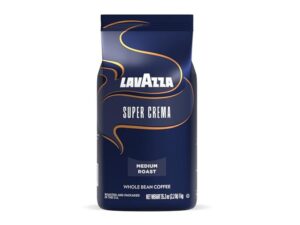Coffee lovers often wonder about the shelf life of their favorite beans. So, how long are coffee beans good for?
Generally, coffee beans stay fresh for up to two weeks after roasting. Coffee loses its freshness over time, affecting taste and aroma. Understanding the shelf life of coffee beans can help you enjoy a better cup of joe. Proper storage is key.
Factors like air, moisture, and light can speed up the staling process. By storing beans correctly, you can extend their freshness. Let’s explore the best ways to keep your coffee beans fresh and flavorful for as long as possible. This guide will help you enjoy that perfect cup every time.
Shelf Life Of Coffee Beans
Coffee lovers often wonder how long coffee beans stay fresh. The shelf life of coffee beans depends on several factors. Understanding these elements helps keep your coffee fresh and flavorful. Let’s explore the shelf life of coffee beans and what affects their freshness.
Factors Affecting Freshness
Several factors impact the freshness of coffee beans. Proper storage is key to maintaining their quality. Here are some important aspects to consider:
- Storage Conditions: Coffee beans need to be stored in a cool, dry place. Avoid exposing them to light, heat, and moisture.
- Packaging: Beans stored in airtight containers stay fresh longer. Proper packaging protects beans from oxygen and humidity.
- Grinding: Whole beans stay fresh longer than ground coffee. Grinding accelerates the oxidation process, reducing shelf life.
- Roast Date: Freshness begins to decline after roasting. Always check the roast date before purchasing.
Here is a table summarizing the typical shelf life of coffee beans under different conditions:
| Condition | Shelf Life |
|---|---|
| Unopened, vacuum-sealed bag | 6-9 months |
| Opened bag, stored properly | 2-3 weeks |
| Whole beans in an airtight container | 1 month |
| Ground coffee | 1-2 weeks |
Ensuring proper storage can extend the life of your coffee beans. It keeps them fresh and full of flavor.
Different Types Of Coffee Beans
Different types of coffee beans have different shelf lives. Knowing the types helps in understanding their freshness. Here are the main types:
- Arabica Beans: These are high-quality beans. They have a delicate flavor. Arabica beans stay fresh for about 6 months when stored properly.
- Robusta Beans: Robusta beans are stronger and have more caffeine. They have a longer shelf life compared to Arabica. They can stay fresh for up to 9 months.
- Specialty Beans: These are often single-origin beans. They are roasted to highlight unique flavors. Specialty beans should be consumed within 2-3 weeks for the best taste.
Different beans also react differently to storage methods:
- Light Roast: Lightly roasted beans have more moisture. They tend to lose freshness faster than dark roasts.
- Dark Roast: Dark roasts are less moist and have a longer shelf life. They can stay fresh for several months if stored correctly.
Understanding the type of coffee bean and its roast level helps in maintaining its freshness. Always check the roast date and store beans in airtight containers.
Storage Conditions
When storing coffee beans, their freshness and flavor can be affected by various factors. Proper storage conditions play a crucial role in maintaining the quality of your coffee beans. Understanding the ideal storage environment can help you enjoy your coffee longer. Let’s explore the key aspects of storage conditions for coffee beans.
Ideal Temperature
Temperature is a critical factor for preserving coffee beans. Keeping coffee beans at the right temperature helps maintain their flavor and aroma. Here are some essential tips for storing coffee beans at the ideal temperature:
- Room Temperature: Store coffee beans at room temperature, around 20°C (68°F).
- Avoid Heat: Keep beans away from heat sources like ovens or direct sunlight.
- Consistent Temperature: Fluctuating temperatures can degrade the beans’ quality.
To illustrate the impact of temperature, consider the table below:
| Temperature (°C) | Storage Duration | Impact on Quality |
|---|---|---|
| 20°C (68°F) | Up to 2 weeks | Maintains freshness |
| Above 25°C (77°F) | Less than 1 week | Decreases freshness |
| Below 15°C (59°F) | Up to 3 weeks | Preserves flavor, but too cold can dry out beans |
Keeping coffee beans at the right temperature ensures they stay fresh longer. This simple step can greatly enhance your coffee experience.
Moisture Control
Moisture is another enemy of coffee beans. Proper moisture control prevents beans from becoming stale or moldy. Here are some tips for controlling moisture when storing coffee beans:
- Keep Dry: Always store beans in a dry place.
- Avoid Humidity: Humidity can cause beans to absorb moisture and spoil.
- Airtight Containers: Use airtight containers to protect beans from moisture.
Consider the following table highlighting the impact of humidity on coffee beans:
| Humidity Level | Storage Duration | Impact on Quality |
|---|---|---|
| Low Humidity (30-50%) | Up to 2 weeks | Maintains freshness |
| High Humidity (above 70%) | Less than 1 week | Beans become stale or moldy |
Using airtight containers helps protect beans from moisture in the air. Storing coffee in a cool, dry place with low humidity is essential for preserving its quality. With proper moisture control, you can keep your coffee beans fresh and flavorful for a longer period.
Signs Of Staleness
Understanding how long coffee beans stay fresh is important for every coffee lover. Fresh coffee beans can make a big difference in taste and aroma. Over time, coffee beans can go stale. Knowing the signs of staleness will help you enjoy the best coffee experience. Let’s explore the key indicators of staleness in coffee beans.
Aroma Changes
The aroma of fresh coffee beans is rich and inviting. When coffee beans start to go stale, their aroma changes. Here are some common signs:
- Weak Smell: Fresh coffee beans have a strong, pleasant smell. Stale beans will have a faint or dull aroma.
- Off Smell: Sometimes, stale beans can have a strange, almost sour smell. This is a clear sign they are no longer fresh.
To check the aroma of your coffee beans, you can do a simple test. Take a small handful of beans and smell them. Fresh beans will have a vibrant scent. If the smell is weak or off, it might be time to get new beans.
Here is a quick comparison table for reference:
| Fresh Beans | Stale Beans |
|---|---|
| Strong, pleasant smell | Weak or off smell |
| Rich and inviting aroma | Dull or sour scent |
Flavor Deterioration
Flavor is another key indicator of coffee bean staleness. Fresh beans produce a full, rich flavor. Stale beans, on the other hand, will lead to a disappointing cup of coffee. Here are some signs of flavor deterioration:
- Bitter Taste: Fresh coffee has a balanced flavor. Stale coffee often tastes bitter or sour.
- Flat Taste: Stale beans can produce a flat or lifeless taste. This means the coffee lacks depth and complexity.
To test the flavor, brew a cup of coffee with your beans. Pay close attention to the taste. If the flavor is bitter, sour, or flat, it’s likely that your beans are stale.
Below is a summary table for quick reference:
| Fresh Beans | Stale Beans |
|---|---|
| Rich and balanced flavor | Bitter or sour taste |
| Full-bodied and complex | Flat and lifeless |
By paying attention to these signs, you can ensure that you are always enjoying the freshest and most flavorful coffee.
Best Practices For Storage
Introduction paragraph about How Long are Coffee Beans Good for and Best Practices for Storage…
Storing coffee beans properly ensures they stay fresh and flavorful for a longer period. To enjoy the best coffee experience, follow these best practices for storage. Simple steps can make a big difference in maintaining the quality of your coffee beans.
Air-tight Containers
Using air-tight containers is one of the most effective ways to store coffee beans. Exposure to air can make the beans go stale quickly. An air-tight container prevents oxygen from spoiling the beans.
Here are some features to look for in a good air-tight container:
- Sealed Lid: Ensure the lid fits tightly to keep air out.
- Opaque Material: Prevents light from affecting the beans.
- Durable Build: A sturdy container avoids cracks and leaks.
Many materials can be used for air-tight containers. Each has its pros and cons:
| Material | Advantages | Disadvantages |
|---|---|---|
| Glass | Non-reactive, easy to clean | Can break, allows light if not opaque |
| Stainless Steel | Durable, light-blocking | Heavier, more expensive |
| Plastic | Lightweight, affordable | May retain odors, not as durable |
Choosing the right air-tight container helps preserve the aroma and taste of your coffee beans for weeks or even months.
Avoiding Light Exposure
Light can be a hidden enemy for coffee beans. Exposure to light can degrade the quality of the beans. They lose their flavor and aroma.
Here are some tips to avoid light exposure:
- Store in a Dark Place: Keep your containers in a pantry or cabinet.
- Opaque Containers: Use containers that do not let light in.
- Avoid Clear Jars: Even if they look nice, clear jars are not good for storage.
Avoiding light exposure is crucial to maintaining the beans’ quality. Here are a few examples:
| Storage Method | Effectiveness |
|---|---|
| Clear Glass Jar on Counter | Poor, allows light in |
| Opaque Tin in Cabinet | Excellent, blocks light |
| Plastic Container in Pantry | Good, if opaque |
By following these tips, you can keep your coffee beans fresh and full of flavor. Simple changes can make a big difference in your daily cup of coffee.
Freezing Coffee Beans
Coffee lovers often wonder how long coffee beans stay fresh. One effective way to extend their shelf life is by freezing them. Freezing coffee beans can help preserve their flavor and aroma for a longer time. This method is especially useful if you buy coffee beans in bulk. Below, we will explore the process of freezing coffee beans and how to properly thaw them for the best coffee experience.
How To Freeze
Freezing coffee beans is a straightforward process. Follow these steps to ensure your beans retain their quality:
- Choose the Right Container: Use airtight containers or vacuum-sealed bags to prevent moisture and odors from penetrating the beans. Glass jars with tight lids or heavy-duty freezer bags work well.
- Divide into Portions: Only freeze what you can use within a week or two. This avoids repeated thawing and freezing, which can degrade the beans.
- Label and Date: Always label your containers with the date of freezing. This helps you keep track of how long the beans have been frozen.
- Store Properly: Place the containers in the back of the freezer where the temperature is most stable. Avoid placing them near the freezer door to prevent temperature fluctuations.
By following these steps, you can freeze coffee beans effectively. This method helps maintain their freshness for up to six months.
Thawing Process
Thawing coffee beans correctly is crucial for preserving their flavor. Here’s how to do it:
- Plan Ahead: Remove the amount of beans you need from the freezer the night before you plan to use them. Place them in an airtight container to thaw at room temperature.
- Avoid Moisture: Ensure the container remains sealed during thawing. This prevents condensation from forming on the beans, which can affect their quality.
- Use Immediately: Once thawed, grind and brew the beans as soon as possible. Freshly ground coffee always tastes better.
Never refreeze thawed coffee beans. This can cause a loss of flavor and aroma. Thawing coffee beans properly ensures a fresh and delightful coffee experience.

Credit: www.reddit.com
Grinding And Freshness
Understanding how long coffee beans are good for and the impact of grinding on their freshness is crucial for any coffee lover. Freshness directly affects the flavor and aroma of your coffee. Let’s dive into the details of how grinding influences the longevity and taste of your coffee beans.
Whole Beans Vs. Ground
Whole coffee beans stay fresh longer than ground coffee. This is because grinding exposes more surface area to oxygen, which accelerates the degradation process. Here are some key points to consider:
- Whole Beans: Can stay fresh for up to 2-4 weeks when stored properly.
- Ground Coffee: Begins to lose its freshness within 15 minutes of grinding.
Storing whole beans correctly is essential. Use an airtight container and keep it in a cool, dark place. Avoid the fridge, as it can introduce moisture and odors. For ground coffee, use it as soon as possible to enjoy the best flavor.
| Type | Freshness Duration | Storage Tips |
|---|---|---|
| Whole Beans | 2-4 weeks | Airtight container, cool, dark place |
| Ground Coffee | 15 minutes | Use immediately |
Grinding Just Before Brewing
Grinding your coffee beans just before brewing is the best way to ensure maximum freshness and flavor. Here’s why:
- Maximized Flavor: Freshly ground coffee retains more of its natural oils and aromatic compounds.
- Better Aroma: The aroma of fresh coffee is much more intense and pleasant.
- Custom Grind Size: You can adjust the grind size to suit your brewing method, from coarse for French press to fine for espresso.
Using a burr grinder is recommended for consistent grind size. Blade grinders can be less uniform, affecting the taste of your coffee. Remember, the fresher the grind, the better the coffee.
So, if you want to enjoy the best cup of coffee, grind your beans right before brewing. This small step makes a big difference in the quality of your coffee.
Using Expired Coffee Beans
Ever wondered how long coffee beans stay fresh? It’s a common question for coffee lovers. Coffee beans have a shelf life, and using expired ones can impact your brew. Let’s explore the safety and taste aspects of using expired coffee beans.
Safety Concerns
Using expired coffee beans raises several safety concerns. Old beans might not be dangerous, but their quality can degrade. Over time, coffee beans can lose their flavor and aroma due to exposure to air, moisture, and light.
Here are some factors to consider:
- Storage conditions: Proper storage in a cool, dark place extends the life of coffee beans. But, if stored improperly, they can develop mold or bacteria.
- Appearance: Check for any visible mold or unusual spots. Mold can be harmful if ingested.
- Smell: Fresh coffee beans have a rich, inviting aroma. If the beans smell off or stale, it’s best to discard them.
In general, coffee beans are safe to consume past their expiration date. But, they might not provide the best experience. Here’s a quick reference table for coffee bean shelf life:
| Type of Coffee | Shelf Life (Unopened) | Shelf Life (Opened) |
|---|---|---|
| Whole Beans | 6-9 months | 2-3 months |
| Ground Coffee | 3-5 months | 1-2 months |
Taste Considerations
Taste is a critical factor when using expired coffee beans. Fresh beans offer a rich and complex flavor profile. Expired beans, on the other hand, tend to lose their taste and aroma.
Key taste considerations include:
- Stale Flavor: Expired beans often taste flat and stale, lacking the vibrant notes of fresh coffee.
- Oil Rancidity: Coffee beans contain natural oils. Over time, these oils can become rancid, giving the coffee a bitter or sour taste.
- Lack of Freshness: Fresh coffee has a lively taste. Expired beans may result in a dull, lifeless cup of coffee.
If you still decide to use expired beans, consider these tips:
- Use a French press or pour-over method to maximize flavor extraction.
- Add spices like cinnamon or cardamom to mask any off-flavors.
- Mix expired beans with fresh ones to balance the taste.
Ultimately, while using expired coffee beans is not hazardous, it can significantly impact your coffee’s taste and quality. Prioritize freshness for the best coffee experience.

Credit: cafely.com
Maximizing Coffee Freshness
Introduction paragraph about How Long are Coffee Beans Good for and Maximizing Coffee Freshness…
To savor the best flavor of coffee, you need to focus on the freshness of your beans. Coffee beans start to lose their flavor soon after roasting. Maximizing their freshness ensures you enjoy a rich, aromatic cup every time. Here, we discuss essential tips to keep your coffee beans fresh for longer.
Buying In Small Batches
Buying coffee beans in small batches is key to maintaining freshness. Large quantities can go stale before you finish them. Here are some practical tips:
- Purchase Frequency: Buy enough coffee to last one to two weeks.
- Storage: Store beans in an airtight container away from light and heat.
- Grind Size: Grind only what you need for immediate use.
Buying in smaller amounts ensures your beans are always fresh. Here is a simple table to understand the benefits:
| Batch Size | Freshness Duration | Benefits |
|---|---|---|
| Small (1-2 weeks) | High | Optimal flavor, reduced waste |
| Large (1 month or more) | Low | Flavor loss, increased waste |
By buying in small batches, you ensure each cup is as fresh as possible. This practice also prevents waste, saving you money in the long run.
Choosing Quality Beans
The quality of your coffee beans greatly impacts their freshness and flavor. High-quality beans tend to stay fresh longer. Here’s what to look for:
- Origin: Choose beans from reputable regions known for quality coffee.
- Roast Date: Look for the roast date on the package, not the expiration date.
- Packaging: Opt for vacuum-sealed or nitrogen-flushed bags to maintain freshness.
Quality beans often come from specific regions known for their coffee. Below is a table showing some top coffee-producing regions and their characteristics:
| Region | Flavor Profile | Freshness Duration |
|---|---|---|
| Colombia | Rich, balanced | 4-6 weeks |
| Ethiopia | Fruity, floral | 4-6 weeks |
| Brazil | Nutty, chocolatey | 4-6 weeks |
Selecting beans from these regions can enhance your coffee experience. Always check the roast date to ensure maximum freshness. Quality beans, combined with proper storage, will give you the best possible coffee.

Credit: abysscoffee.es
Frequently Asked Questions
How Long Do Coffee Beans Stay Fresh?
Coffee beans stay fresh for up to 2 weeks after roasting. Store them in an airtight container in a cool, dark place.
Can Old Coffee Beans Make You Sick?
Old coffee beans won’t make you sick, but they lose flavor and aroma. They can taste stale and flat.
Should I Freeze Coffee Beans?
Freezing coffee beans can extend their shelf life. Use an airtight container to prevent moisture and odors.
How Can I Tell If Coffee Beans Are Bad?
Bad coffee beans lose their aroma and taste stale. They may also appear oily or discolored.
Conclusion
Proper storage keeps coffee beans fresh longer. Store them in airtight containers. Avoid sunlight and moisture. Use beans within two weeks for best flavor. Older beans lose aroma and taste. Freshness matters for great coffee. Check roast dates before buying.
Enjoy your coffee at its peak. Happy brewing!
